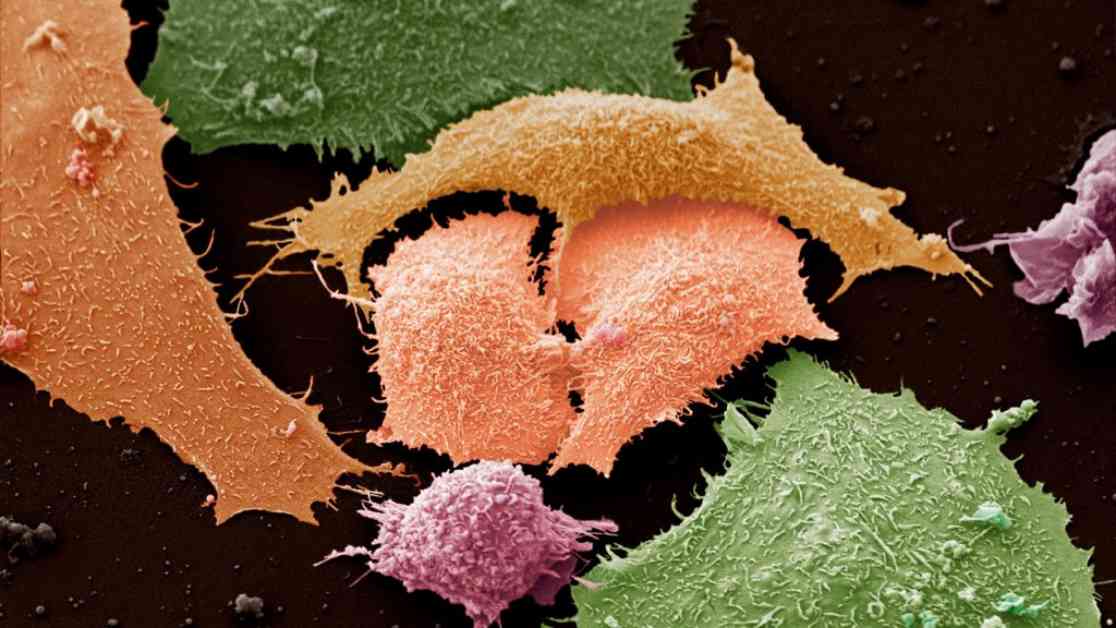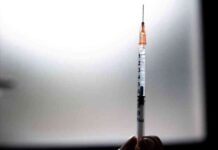iTeos and GSK Lung Cancer Drug Shows Promising Response, Highlighting TIGIT as Target
A groundbreaking immunotherapy developed by iTeos Therapeutics and GSK has shown remarkable response rates in patients with a specific type of lung cancer, leading to the advancement of the treatment to a pivotal Phase 3 trial. This success has sparked discussions about the significance of the target, TIGIT, in cancer treatment.
The collaboration between iTeos and GSK resulted in a combination of a TIGIT-targeting antibody and GSK’s Jemperli, which demonstrated a significant increase in the percentage of patients experiencing tumor shrinkage compared to those who received Jemperli alone. The Phase 2 trial met its objectives and surpassed analysts’ expectations, positioning it as a success in the field of cancer immunotherapy.
Michel Detheux, the CEO of iTeos, expressed his enthusiasm about the profound response observed in patients. The positive outcomes of the trial have generated optimism within the scientific community and raised hopes for improved treatment options for lung cancer patients.
The Role of TIGIT in Cancer Immunotherapy
TIGIT, or T-cell immunoreceptor with Ig and ITIM domains, is a promising target in cancer immunotherapy. It is a checkpoint protein that plays a crucial role in regulating the immune response to cancer cells. By targeting TIGIT, researchers aim to enhance the immune system’s ability to recognize and attack cancer cells effectively.
The success of the iTeos and GSK collaboration in targeting TIGIT highlights the potential of this approach in treating lung cancer. The positive results observed in the Phase 2 trial underscore the importance of further exploring TIGIT as a therapeutic target in cancer immunotherapy.
Moving Towards a Pivotal Phase 3 Trial
The promising response rates seen in the Phase 2 trial have paved the way for the advancement of the iTeos and GSK lung cancer drug to a pivotal Phase 3 trial. This critical stage of clinical development will further evaluate the efficacy and safety of the treatment in a larger patient population.
The initiation of the Phase 3 trial marks a significant milestone in the journey towards bringing this innovative therapy to patients in need. The collaboration between iTeos and GSK holds great promise for the future of lung cancer treatment and underscores the importance of continued research and development in the field of cancer immunotherapy.
Implications for the Biopharma Industry
The success of the iTeos and GSK lung cancer drug has broader implications for the biopharma industry. It highlights the potential of targeted immunotherapies in improving treatment outcomes for cancer patients. The positive results of the Phase 2 trial may influence future research and development efforts in the field of oncology.
The collaboration between iTeos and GSK serves as a model for effective partnership in advancing innovative therapies. By combining their expertise and resources, the two companies have achieved significant progress in developing a novel treatment for lung cancer. This success underscores the importance of collaboration and innovation in driving advancements in cancer care.
Looking Ahead: Future Prospects in Cancer Immunotherapy
The promising results of the iTeos and GSK lung cancer drug trial offer hope for the future of cancer immunotherapy. By targeting TIGIT, researchers have demonstrated the potential to improve treatment outcomes for patients with lung cancer. The success of this collaboration highlights the importance of innovative approaches in cancer research and treatment.
As the iTeos and GSK lung cancer drug progresses to a pivotal Phase 3 trial, the scientific community eagerly anticipates further insights into its efficacy and safety. The outcomes of this trial will not only impact the future of lung cancer treatment but also shape the landscape of cancer immunotherapy as a whole.
In Conclusion,
The collaboration between iTeos Therapeutics and GSK has yielded promising results in the development of a targeted immunotherapy for lung cancer. The success of the Phase 2 trial has propelled the treatment into a pivotal Phase 3 trial, highlighting the significance of TIGIT as a therapeutic target in cancer immunotherapy. This achievement underscores the potential of innovative therapies in improving outcomes for cancer patients and paves the way for further advancements in the field of oncology.

















